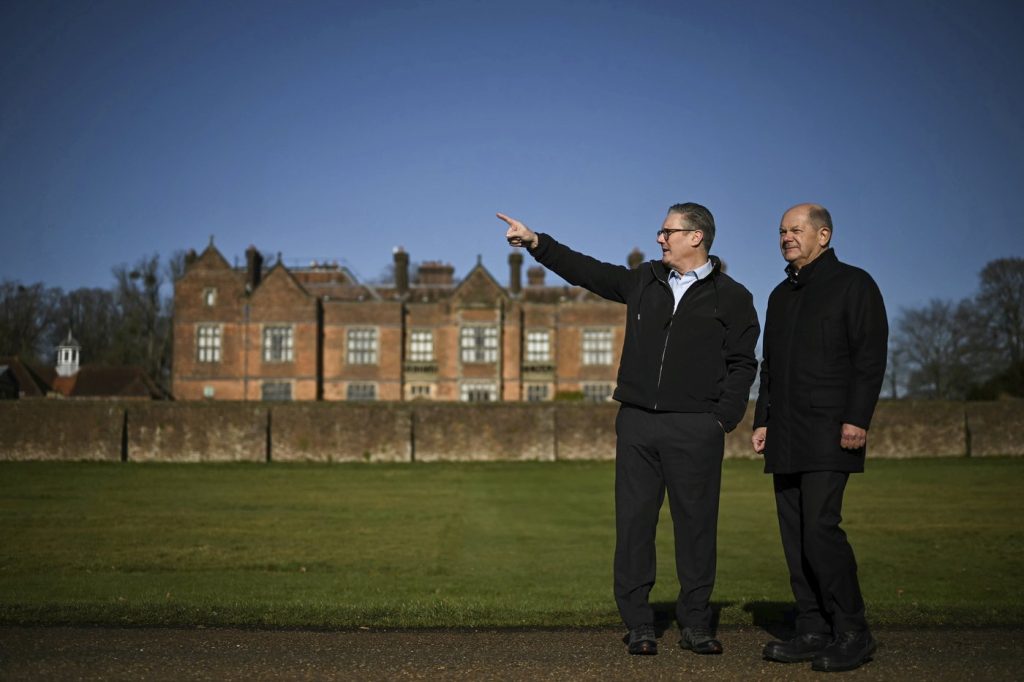On Sunday, British Prime Minister Keir Starmer welcomed German Chancellor Olaf Scholz to his country estate, Chequers, located in Buckinghamshire, approximately 30 miles northwest of London. This meeting took place just before the two leaders travel to Belgium to engage with European Union officials on Monday. Starmer's objective during this trip is to initiate a "reset" of the UK's relationship with the EU.
Starmer firmly ruled out any possibility of rejoining the EU trade bloc, which has been a point of contention five years after Brexit. However, he expressed his intention to strengthen ties with the EU in areas such as defense, energy, and trade. Starmer emphasized that enhancing this relationship is beneficial not only for the UK but also for the EU, noting a significant shift in tone and approach in the past seven months under his leadership.
During their meeting, Starmer and Scholz discussed critical global issues, including the situation in Ukraine and the Middle East. According to a spokesperson for Starmer, the two leaders rejected the notion of isolationism, instead underscoring their unified commitment to challenges posed by Russia's ongoing conflict in Ukraine, which is entering its fourth year. They recognized that the invasion has highlighted the urgent need for enhanced defense coordination and production capabilities.
The UK and Germany recently signed a defense pact in October, marking a pivotal agreement between NATO member nations aimed at bolstering European security in the face of rising Russian aggression. Starmer mentioned that the upcoming British government's strategic defense review later this year would reflect insights gained from the situation in Ukraine, aiming to counteract the aggressive maneuvers of Russian President Vladimir Putin throughout Europe.
Starmer acknowledged the challenging political landscape in Germany, particularly for Scholz, who is currently navigating a difficult re-election campaign. The Chancellor's party, the Social Democrats, trails behind the Christian Democratic Union and the far-right Alternative for Germany (AfD) in the polls, with just three weeks remaining until the elections scheduled for February 23.
Reflecting on his own tenure, Starmer expressed his commitment to enhancing UK-Germany relations, which he deemed already strong but capable of further improvement. He credited Scholz’s leadership for the real progress achieved between the two countries.
In response, Scholz described the visit as a "good sign" of the excellent relations between the UK and Germany, highlighting the personal rapport that has developed between the two leaders. The meeting, which included a tour of the Chequers estate and a lunch, underscores the collaborative spirit between the two nations as they face common challenges on the global stage.










